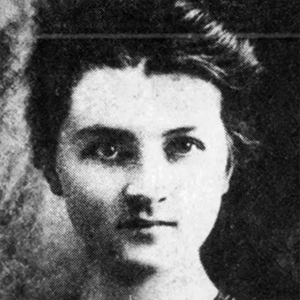Daisy Minahan, being first duly sworn, upon oath deposes and says: I was asleep in stateroom C-78; the crying of a woman in the passageway awakened me. I roused my brother and his wife, and we began at once to dress. No one came to give us warning. We spent five minutes in dressing and went on deck to the port side. The frightful slant of the deck toward the bow of the boat gave us our first thought of danger. An officer came and commanded all women to follow, and he led us to the boat deck on the starboard side. He told us there was no danger, but to get into a lifeboat as a precaution only. After making three attempts to get into boats, we succeeded in getting into lifeboat No. 14. The crowd surging around the boats was getting unruly.
Officers were yelling and cursing at men to stand back and let the women get into the boats. In going from one lifeboat to another we stumbled over huge piles of bread lying on the deck.
When the lifeboat was filled there were no seamen to man it. The officer in command of No.14 called for volunteers in the crowd who could row. Six men offered to go. At times when we were being lowered we were at an angle of 45° and expected to be thrown into the sea. As we reached the level of each deck men jumped into the boat until the officer threatened to shoot the next man who jumped. We landed in the sea and rowed to a safe distance from the sinking ship. The officer counted our number and found us to be 48. The officer commanded everyone to feel in the bottom of the boat for a light. We found none. Nor was there bread or water in the boat. The officer whose name I learned afterwards to be Lowe, was continually making remarks such as, "A good song to sing would be, Throw Out the Life Line," and "I think the best thing for you women to do is to take a nap."
The Titanic was fast sinking. After she went down the cries were horrible. This was at 2:20 a.m. by a man's watch who stood next to me. At this time three other boats and ours kept together by being tied to each other. The cries continued to come over the water. Some of the women implored Officer Lowe, of No. 14, to divide his passengers among the three other boats and go back to rescue. His first answer to those requests was, "You ought to be damn glad you are here and have got your own life." After some time he was persuaded to do as he was asked. As I came up to him to be transferred to the other boat he said, "Jump, God damn you, jump." I had showed no hesitancy and was waiting only my turn. He had been so blasphemous during the two hours we were in his boat that the women at my end of the boat all thought he was under the influence of liquor. Then he took all of the men who had rowed No. 14, together with the men from the other boats, and went back to the scene of the wreck. We were left with a steward and a stoker to row our boat, which was crowded. The steward did his best, but the stoker refused at first to row, but finally helped two women, who were the only ones pulling on that side. It was just 4 o'clock when we sighted the Carpathia, and we were three hours getting to her. On the Carpathia we were treated with every kindness and given every comfort possible.
A stewardess who had been saved told me that after the Titanic left Southampton that there were a number of carpenters working to put the doors of the air-tight compartments in working order. They had great difficulty in making them respond, and one of them remarked that they would be of little use in case of accident, because it took so long to make them work.
Source Reference
Title
Affidavit of Daisy Minahan
Survivor
Ida Daisy MinahanDate
May 13, 1912
Archive
U.S. Senate InquiryCopyright Status
Public DomainThis is item can be used freely as part of Titanic Archive’s Open Access policy.
